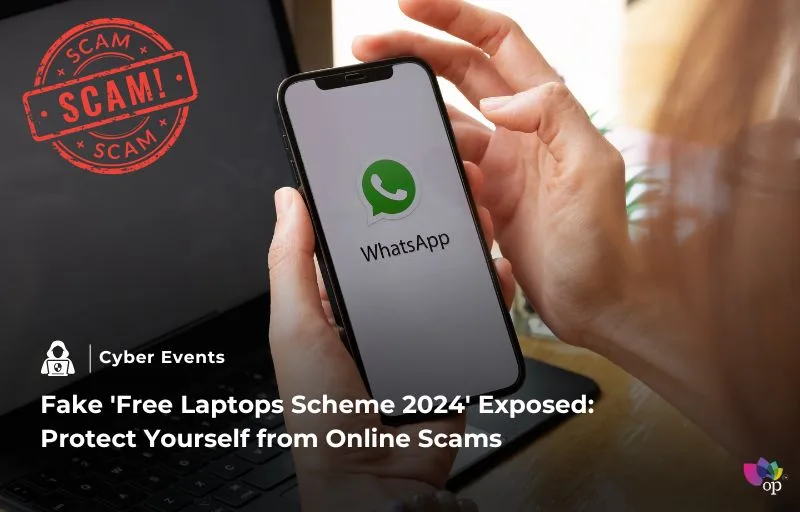The rise of digital scams has seen another example emerge, as WhatsApp users nationwide report receiving messages about a “Free Laptops Scheme 2024.” This scheme claims to provide laptops to students who cannot afford one due to financial constraints. However, the government’s Press Information Bureau (PIB) has identified this as a fraudulent operation designed to steal personal information.
What Is the Message About?
The message describes an initiative allegedly aimed at helping financially disadvantaged students. It claims over 960,000 laptops will be distributed nationwide as part of this scheme. It urges users to apply by clicking on a link and filling out a form with personal and educational details.
The fraudulent link is presented as: https://lc.ke/Students-FREE-LAPTOP. Scammers use this method to lure unsuspecting individuals into sharing sensitive information.
PIB’s Warning
The Press Information Bureau, tasked with combating misinformation, has confirmed this message is fake. It emphasizes that no such government scheme exists and warns citizens against engaging with these messages.
The organization advises the public to refrain from clicking on unverified links or sharing personal data online. These scams often aim to collect details that could be misused for further fraudulent activities, such as identity theft, phishing, and financial fraud.
How Does the Scam Operate?
This particular scam leverages trust by mimicking an official program and targeting students, a group often in need of affordable technology for education. Here’s how it unfolds:
- Luring the Victim: The message promises an enticing benefit—free laptops for education.
- Gathering Information: Once users click on the link, they are directed to a form requesting personal and academic details.
- Exploitation: The collected data can be sold, used for identity theft, or deployed in other malicious activities. Some links may also contain malware, which can infect devices to steal passwords or financial information.
Analysis: Why Do These Scams Succeed?
- Targeting a Vulnerable Group: Students, especially those struggling financially, are more likely to trust and engage with offers promising educational tools.
- Authentic Appearance: Scammers craft their messages to mimic official announcements, making it hard for some individuals to distinguish between legitimate and fraudulent offers.
- Psychological Triggers: The fear of missing out (FOMO) and the appeal of free resources drive many to act without proper verification.
How to Protect Yourself
Staying safe from such scams requires vigilance and knowledge. Here are steps to safeguard against online fraud:
- Verify Official Announcements: Always cross-check offers claiming to be from government schemes through official websites or press releases.
- Avoid Clicking Unverified Links: Random links shared on messaging platforms often lead to scams or malicious sites.
- Be Cautious with Personal Information: Never share sensitive details like identification numbers, bank details, or passwords unless you know the recipient’s credibility.
- Update Cybersecurity Measures: Ensure your devices have up-to-date antivirus software to guard against malware threats.
Conclusion
This fraudulent “Free Laptops Scheme 2024” is a stark reminder of the importance of online vigilance. While digital communication offers immense convenience, it also creates opportunities for scammers to exploit unsuspecting users. You can protect yourself and others from falling prey to such schemes by staying informed and cautious. Always verify the authenticity of any message that seems too good to be true, and share this information with others to raise awareness.
Let this serve as a lesson: in the digital age, awareness is your best defense against scams.



Can you be more specific about the content of your article? After reading it, I still have some doubts. Hope you can help me.